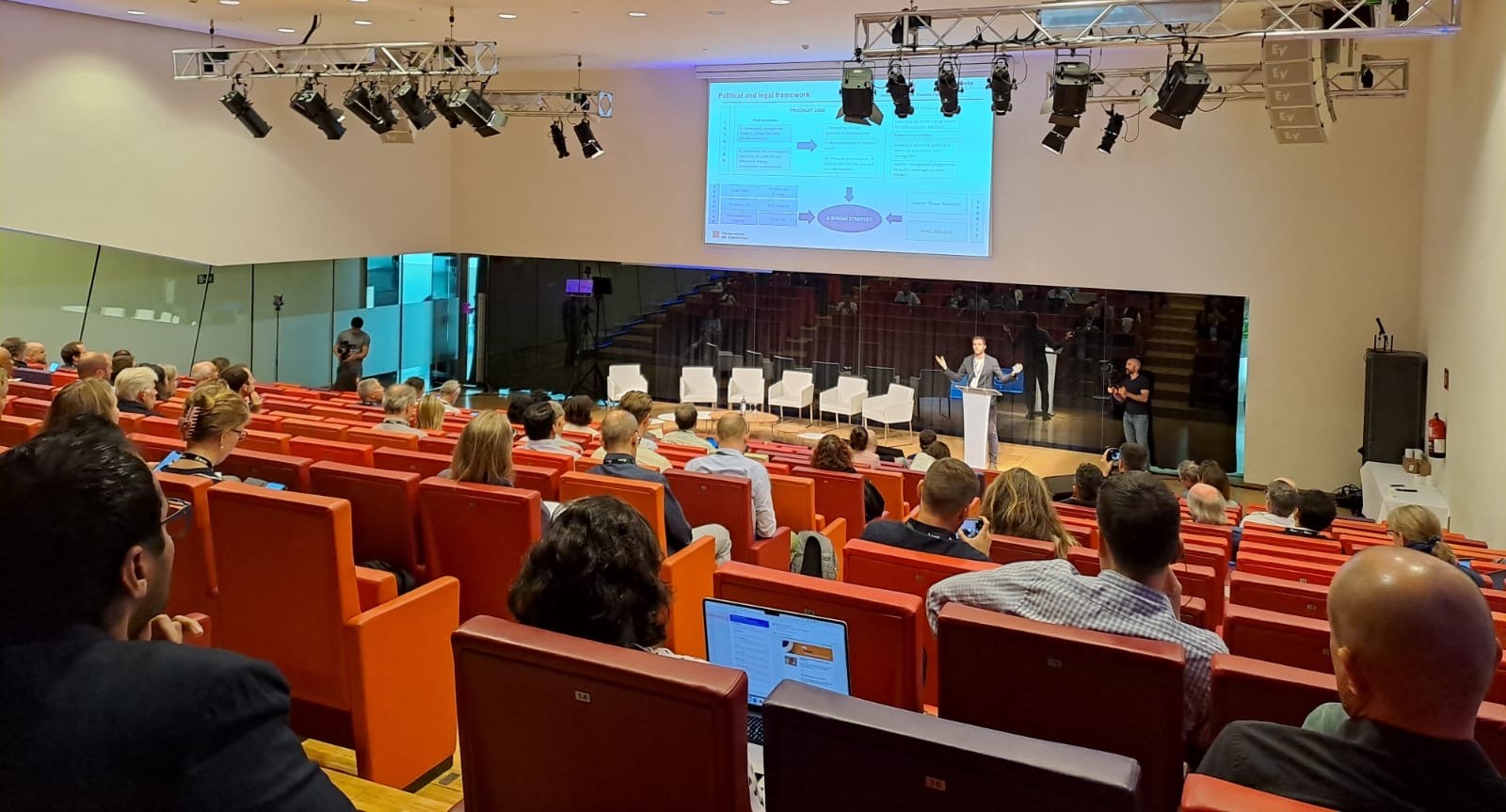CT BETA promotes the creation of the Catalan Nutrients Platform for a sustainable management of agriculture and livestock farming

- Pollution by nutrients, such as nitrogen and phosphorus, is one of the main environmental problems in Catalonia.
- The new platform will be a key tool to advance the challenge of sustainable management of the nutrient cycle in the agricultural and livestock sectors.
- The presentation took place in the framework of the ESPC5, a congress held in Lleida that dealt with topics such as the improvement of manure management, fertilisation practices and wastewater treatment.
Europe must meet the growing demand for nutritional quality food by producing it sustainably and adapting to climate change. This challenge is compounded by problems of water and soil pollution. There is a high concentration of nutrients (nitrogen and phosphorus) in soils and groundwater, mainly caused by the use of mineral fertilisers and the over-application of livestock manure and slurry. Approximately two thirds of the nutrients in surface water and groundwater may originate from certain agricultural activities.
The European Commission has set a target to reduce nutrient losses by 50% by 2030, ensuring that there is no deterioration in soil fertility. This target is expected to lead to a reduction in fertiliser use of at least 20%.
Although the agri-food industry has long been working on the responsible management of nitrogen and is already implementing measures to reduce its presence in the environment, special attention is now also beginning to be paid to reducing the quantities of phosphorus. Although it is generated in smaller quantities, high levels of phosphorus can also cause serious environmental problems.
The Catalan Nutrients Platform
To face this challenge, CT BETA has announced the creation of the Catalan Nutrients Platform. This platform will bring together all the relevant actors in the nutrients value chain in Catalonia. Apart from farmers and livestock farmers, representatives of industries linked to nutrient management, such as technology suppliers and fertiliser producers, will also be part of the platform. There will also be leading research centres in this field, associations and the public administration. The direct participation of the public administration in the platform is key, as it is expected to have a direct impact on the regulatory framework affecting nutrient management.
For Laia Llenas, deputy director of CT BETA, ‘the Catalan Nutrients Platform should be a useful tool for everyone and should enable Catalonia to position itself in this field’. For the promoters of the initiative, achieving this positioning would be very important, considering that the agri-food sector is the main economic engine of the country.
In the coming months, the BETA TC of the UVic-UCC will develop the strategic plan and governance model of this new platform. In addition, ‘we will identify the key players that should be part of the platform and work together with them to define the objectives it should have in the coming years,’ adds Llenas.
ESPC5 Congress: An edition focused on the Mediterranean region
The congress of the European Sustainable Phosphorus Platform (ESPC5) held its fifth edition on 8, 9 and 10 October at the Llotja de Lleida. A congress co-organised with the BETA Technological Centre of the UVic – UCC and the European Sustainable Phosphorus Platform (ESPC) that brought together more than 230 people including European governmental authorities, pioneering companies, researchers and other experts in nutrient management. A unique opportunity to discuss the challenge of sustainable phosphorus management with international experts providing innovative solutions.
Topics such as the improvement of livestock manure management, the generation of biogas from this waste, the possibility of obtaining biofertilisers thanks to the latest technological advances, the reuse of phosphorus and the treatment of wastewater were discussed. This fifth edition of the ESPC had a special focus on the Mediterranean region, with the participation of experts from the European Commission and local associations. European companies and experts were present, and topics such as the reuse and recycling of phosphorus, wastewater treatment, and the biogas and digestate plans of Catalonia were also discussed. The congress concluded with visits to two innovative facilities of Fertilizantes del Ebro and Bioenergía de Almenar, specialised in nutrient recovery.
With the ESPC meetings, the European Sustainable Phosphorus Platform aims to drive positive changes towards a more sustainable future and offer solutions to current challenges in agriculture and livestock farming, providing technological innovations and management strategies in the framework of the circular bioeconomy.
